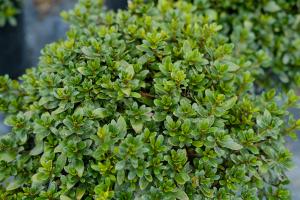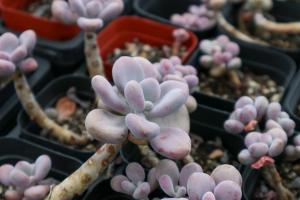Can Plants Absorb Coconut Water?
Coconut water has gained a reputation as a healthy drink for humans due to its high levels of electrolytes and other nutrients. However, the question remains: can plants absorb coconut water? The short answer is yes, but the long answer is more complicated.
The Benefits of Coconut Water for Plants
Coconut water contains several nutrients that can benefit plants. These include:
Potassium: Potassium is an essential nutrient for plant growth, helping to regulate water balance, aid in photosynthesis, and improve stress tolerance.
Natural hormones: Coconut water contains natural plant hormones such as cytokinins, which can promote cell division and growth, and auxins, which can aid in root development and tissue regeneration.
Vitamins and minerals: Coconut water also contains several vitamins and minerals, such as magnesium, calcium, and vitamin C, which can support plant health and growth.
As a result, using coconut water as a fertilizer or spray can provide plants with many benefits, including improved growth and stress tolerance.
How to Use Coconut Water for Plants
There are several ways to use coconut water for plants:
Watering: You can mix coconut water with water and use it to water your plants. Use about one part coconut water to four parts water.
Fertilizer: You can use concentrated coconut water as a fertilizer by diluting it with water and applying it directly to the soil or leaves of your plants.
Spray: You can also use diluted coconut water as a foliar spray, which can help plants absorb nutrients more effectively.
It's important to note that while coconut water can provide several benefits for plants, it should not be used as the sole source of nutrients. Plants still need a balanced diet of other nutrients, such as nitrogen and phosphorus, to grow properly.
Potential Drawbacks of Using Coconut Water for Plants
While coconut water can provide several benefits for plants, there are also some potential drawbacks to consider:
Salt accumulation: Coconut water contains naturally occurring salts, which can build up in the soil over time and cause damage to plants.
Cost: Coconut water can be expensive, especially if you're using it regularly as a fertilizer or spray.
Sustainability: Coconut water is a limited resource that is often imported from other countries, which can have negative environmental impacts.
As a result, it's important to use coconut water sparingly and consider alternative sources of nutrients for your plants.
In Conclusion
Overall, coconut water can provide several benefits for plants, including improved growth and stress tolerance. However, it should be used in moderation and as part of a balanced diet of other nutrients. By using coconut water responsibly, you can help your plants grow healthy and strong.

 how many times do yo...
how many times do yo... how many planted tre...
how many planted tre... how many pine trees ...
how many pine trees ... how many pecan trees...
how many pecan trees... how many plants comp...
how many plants comp... how many plants can ...
how many plants can ... how many plants and ...
how many plants and ... how many pepper plan...
how many pepper plan...































